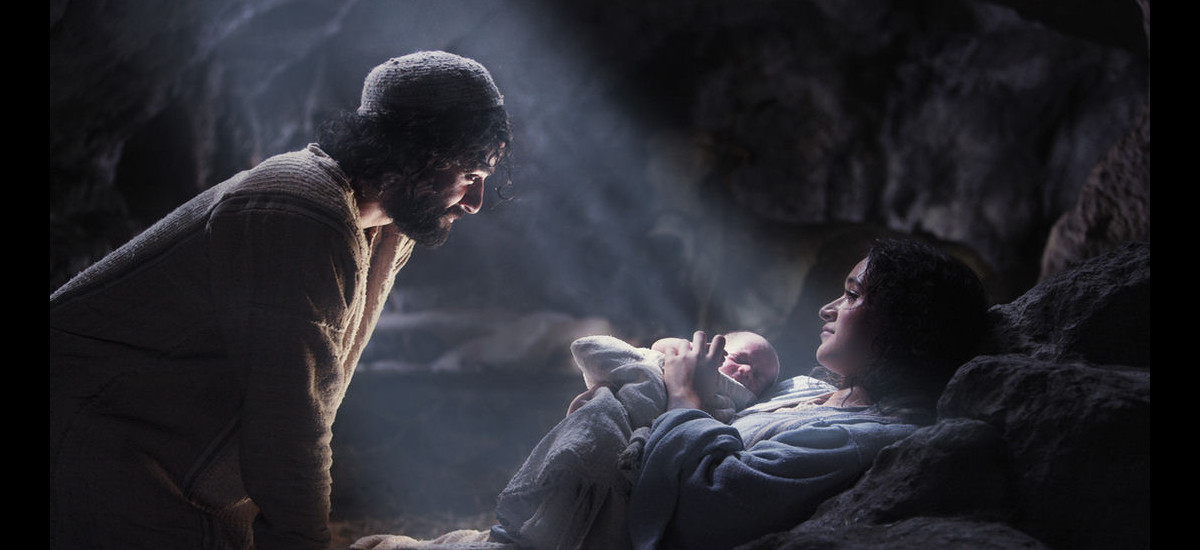So they went in haste and found Mary and Joseph, and the infant lying in the manger.
What is it about babies?
Why are we saw drawn to them? I
suppose not everyone is, but it seems that most people are instinctively moved
by babies. In saying this to you,
perhaps you might verify these thoughts from your own experience – you have
seen how people react to a baby. This
response is not only an adult response; children respond to babies as
well. I recently observed my 2 young
nephews interact with another friend’s baby.
All other play came to a halt as they were transfixed by an infant. Even babies respond to other babies, they are
drawn to the face, the smile and the eyes of one who is so similar to
them.
 Not too long ago I read an
article that researched this question from a scientific perspective. The article acknowledged that it was Charles
Darwin who originally pointed out that there is something about infants which
prompts adults to respond to and care for them which allows our species to
survive. A zoologist further proposed that it is the specific structure of the
infant face, large head, big eyes and cheeks that elicit a parental response.
But a study from 8 years ago took this hypothesis a step further, finding a key
difference in the brain activity of normal adults when they viewed infant faces
compared to adult faces. Their study
showed that a region of the human brain called the medial orbitofrontal
cortex (I guarantee you – no other
Christmas homily is using the phrase "medial orbitofrontal cortex") becomes
highly active within a seventh of a second in response to infant faces but not to
adult faces. The study determined that
these responses are too fast to be consciously controlled and are therefore
perhaps instinctive. This study gives us
the ability to acknowledge that we are biologically made to respond uniquely
and positively to a baby. -- I guess God
knew what he was doing.
Not too long ago I read an
article that researched this question from a scientific perspective. The article acknowledged that it was Charles
Darwin who originally pointed out that there is something about infants which
prompts adults to respond to and care for them which allows our species to
survive. A zoologist further proposed that it is the specific structure of the
infant face, large head, big eyes and cheeks that elicit a parental response.
But a study from 8 years ago took this hypothesis a step further, finding a key
difference in the brain activity of normal adults when they viewed infant faces
compared to adult faces. Their study
showed that a region of the human brain called the medial orbitofrontal
cortex (I guarantee you – no other
Christmas homily is using the phrase "medial orbitofrontal cortex") becomes
highly active within a seventh of a second in response to infant faces but not to
adult faces. The study determined that
these responses are too fast to be consciously controlled and are therefore
perhaps instinctive. This study gives us
the ability to acknowledge that we are biologically made to respond uniquely
and positively to a baby. -- I guess God
knew what he was doing.
Is not our celebration of Christmas a faith expression of
what may also be a biological reality?
We are made to respond to the child.
In a few moments we will profess our faith. Together we will say…
He came down from heaven,
and by the Holy Spirit was incarnate of the Virgin Mary, and became man.
For our sake he was crucified under Pontius Pilate, he suffered death and was buried,
and rose again on the third day.
and by the Holy Spirit was incarnate of the Virgin Mary, and became man.
For our sake he was crucified under Pontius Pilate, he suffered death and was buried,
and rose again on the third day.
 As we gather to celebrate the birth of the Lord, we are
professing that what we ultimately see on the cross, we see first in the
manger. In the cross, the mystery of God’s plan for salvation is fully revealed;
by his act of sacrificial love, granting us hope through the power of the
resurrection. In the manger we see a
child who engages the instincts of our biology and our faith and from this very
moment the world is transformed
As we gather to celebrate the birth of the Lord, we are
professing that what we ultimately see on the cross, we see first in the
manger. In the cross, the mystery of God’s plan for salvation is fully revealed;
by his act of sacrificial love, granting us hope through the power of the
resurrection. In the manger we see a
child who engages the instincts of our biology and our faith and from this very
moment the world is transformed
The child is mystery.
No matter how much knowledge we have about biology, genetics and
reproduction, a newborn child is a profound mystery. We stare in amazement, because we can’t quite
wrap our minds around the full mystery of the birth of a new life. We need mystery in our lives, making us aware
that there is something beyond what we see through eye and mind. Mystery impels us to continue to seek, to
wonder and to be filled with awe in the presence of God. The child born in mystery sets us on the path
of the mystery of our salvation.
The child is Love. We
love babies. We caress them and hold them, expressing the depth of our
affections. But children evoke in us a
deeper love, a sacrificial love. The
baby needs the sacrifice of the sleepless nights of parents, who work two jobs
to support him. The sacrifices of time,
energy and finances are just some of the ways in which the parent offers loving
sacrifice. The child in the manger needs
the sacrificial love of parents and in so doing prepares the way for the
sacrificial love that he offers of himself on the cross.
The child is hope. We
have big dreams for our children. In
them we the solution of world problems, joyfulness in the simplest of things,
and a passion for knowledge. A child
gives hope to the generations that precede her, trusting that she will provide
the care for them as they provided for her.
The child in the manger is the hope that God has not forgotten his
people, that all is not lost and that sin and death ultimately have no power
over us.
What begins in the manger, is fulfilled in the cross and his lived here on this altar whenever we celebrate the Holy Eucharist. Through mystery, love and hope, the one born in a manger, the one who is raised from the dead, is the one whom we encounter today and every day in the Holy Eucharist. We are made to respond to the child, who comes to us. Let our innate desire for him, awake in us an awareness of his desire for us. For he longs for us to embrace the mystery, love and hope of his presence, and so share in the building of His Kingdom.
Merry Christmas!


No comments:
Post a Comment